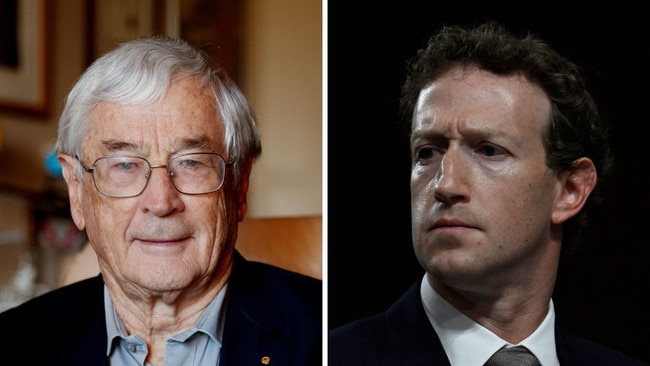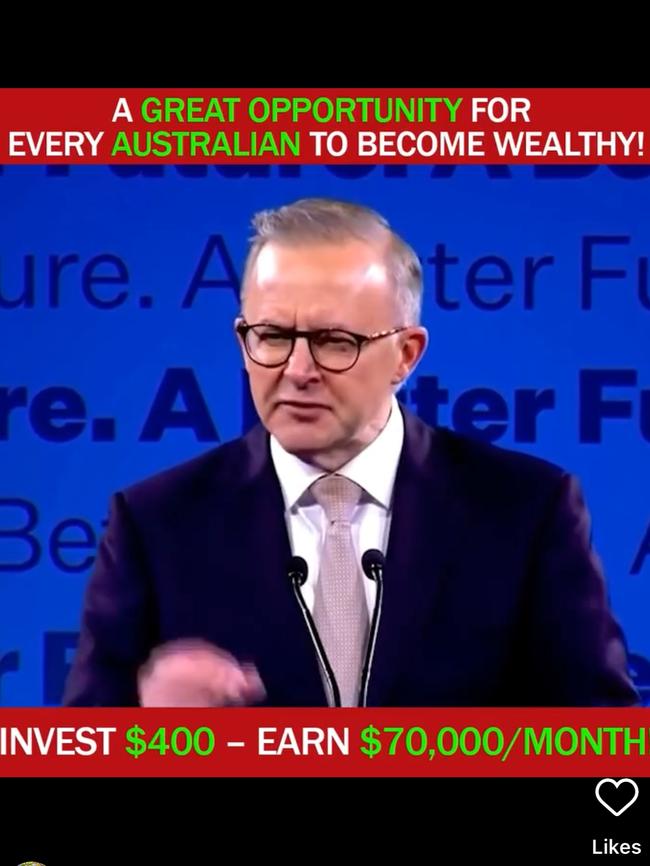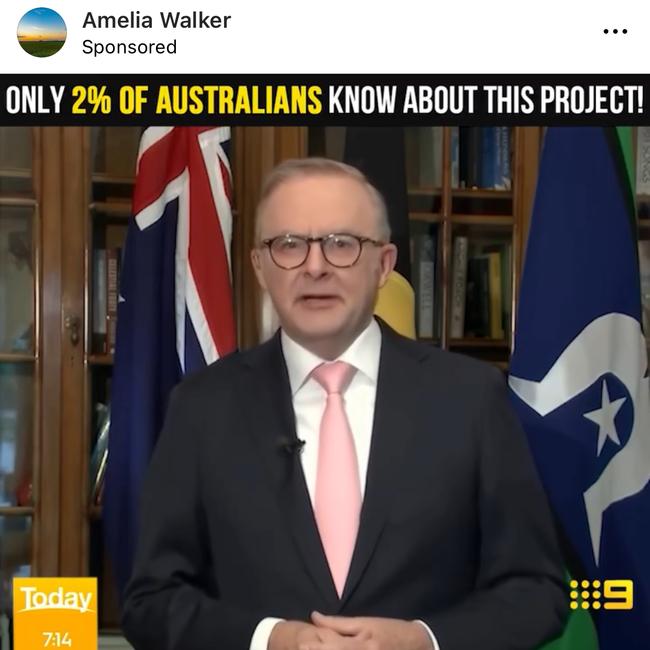Dick Smith slams tech giant Meta for allowing scams to fester on social media
Retail magnate Dick Smith has criticised tech giant Meta for allowing online financial scams using the likeness of Anthony Albanese and prominent business leaders to persuade their victims to invest.

Retail magnate Dick Smith has criticised tech giant Meta for allowing online financial scams using the likeness of Anthony Albanese and prominent business leaders to persuade their victims to invest, just days after the company axed its fact checkers.
Mr Smith has called out tech billionaire and Meta founder Mark Zuckerberg for allowing his platforms to promote content using AI-generated video of himself and other public figures that encourages Australians to invest in scams run by “criminal gangs”.
The electronics entrepreneur’s complaints over the ads, which profess to show Mr Smith, mining magnate Gina Rinehart and businessman Andrew Forrest giving investment advice, prompted the ACCC to take legal action against Meta.
Mr Smith has written to the Prime Minister to inform him of the emergence of a new ad appearing to depict Mr Albanese promoting an investment opportunity that would allow “every Australian to become wealthy” by growing a $400 payment into a $70,000 windfall.
“For an American company to be hijacking the Prime Minister’s likeness, and then allowing this to happen, is just unacceptable,” Mr Smith said.
“It’s one thing doing it with me and with Gina Rinehart, we’re just private citizens, but it’s really completely under the board to use the Prime Minister.
“Because we soon won’t know whether our Prime Minister is actually telling us something that’s the truth, or whether it’s a Facebook scam.”
Mr Smith’s criticism of Meta, the owner of Facebook and Instagram, comes days after the tech company abandoned the use of third-party fact checkers on its platforms and shifted towards an X-style “community notes” system, where users comment on the accuracy of posts.

The change has drawn criticism from online safety experts and comes as US president-elect Donald Trump, a close ally of tech billionaire and X Corp owner Elon Musk, prepares to return to the White House.
Mr Smith has called for Meta and other tech giants to be held to higher standards, arguing that it is unacceptable for social media platforms to accept paid advertisements from scammers without checking, as traditional media outlets would. He has called for legislation to be introduced that holds the online publisher accountable for scam content.
“They don’t even check that their advertisers are genuine – these are criminal gangs,” he said.
“We know that all of these artificial intelligence ads, with myself, Gina Rinehart, Andrew Forrest and the Prime Minister now, they’re all coming from criminal gangs.
“I’ve had a private investigator look into this, and he said, ‘Dick, they’re all criminal gangs’, but they’ve been going on for close to three years now.
“To be that game and that arrogant of Mark Zuckerberg to say, ‘We’re not going to take any note of them’.”

Assistant Treasurer Stephen Jones agreed with Mr Smith that “online scam ads are a scourge”, and said the Albanese government was committed to “protecting the public from the crooks looking to steal from Australians”.
“Meta is one the biggest advertisers of criminal scams in the world and they need to lift their game,” he said.
“This is why the Albanese government has invested over $180m to fight scams and introduced landmark laws that will force social media companies, as well as banks and telcos, to do much more to stop the scammers or face penalties of up to $50m.”
Deakin University political sociologist Josh Roose said Meta’s decision appeared to be following in X’s footsteps, and would lead to a “significant downward spiral in the quality of content”.
“It’s concerning, particularly in the context of the amount of time that children are spending on those platforms, that they would be removing a key safety feature,” he said.
“And I say safety, because this is about protecting people who aren’t necessarily equipped to distinguish between different forms of information and between fact and fiction.”
Strategic Analysis Australia director Michael Shoebridge said the move to remove fact checkers may encourage some governments to censor platforms more, citing recent instances where social media blackouts had been implemented in Pakistan and PNG.
“It plays into the hands of governments that want to control speech, and that’s probably the opposite of what Mark Zuckerberg intended,” he said.





To join the conversation, please log in. Don't have an account? Register
Join the conversation, you are commenting as Logout